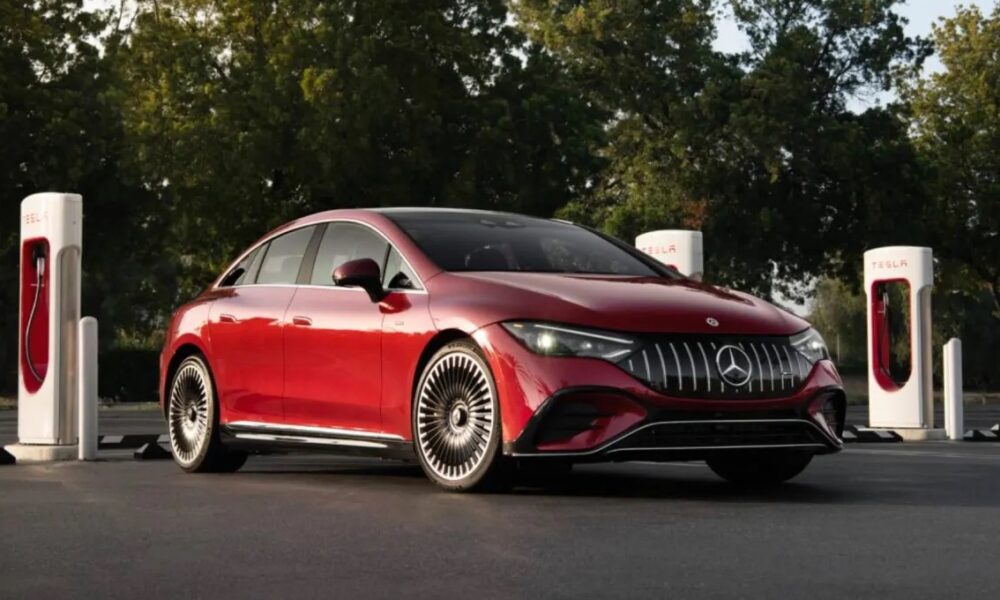
Another European automaker has decided to use Tesla’s charging technology. Mercedes-Benz has confirmed that it will implement the North American Charging Standard (NACS) on new electric vehicles for North America starting in 2025. Drivers will be able to use Tesla’s Supercharger network thanks to the CCS-to-NACS adapter that will appear in 2024, Engadget writes.
This will not affect Mercedes’ plans to deploy its own fast charging network, which is launching this fall, according to the company. The manufacturer plans to build more than 400 “charging stations” in North America by 2030, with a total of 2,500 chargers available. The first installations will now include both CCS and NACS connectors, and will be open to electric vehicles not only from Mercedes.
The company’s management has clearly identified the reasons for this step. This expansion provides drivers with “fast, convenient and reliable” charging, which improves the overall experience of using electric vehicles, says Ola Källenius, Chairman of the Board of Directors of Mercedes. Supercharger support gives you access to many more charging points (over 12,000 Superchargers), making it more likely that you’ll buy an EQB or EQS if you know you can travel across the country while minimizing charging time.
Mercedes becomes the first German automaker to adopt NACS and the third European brand after Volvo and its Polestar sub-brand. Volkswagen is considering the transition, but has not yet committed to the idea beyond adding NACS to Electrify America charging stations. In the United States, companies such as Ford, GM, and Rivian have supported Tesla’s technology. The SAE Mobility Association is developing a standardized version of the plug that can help other manufacturers use this format.
This transition will not be global, and Mercedes’ focus on the premium segment will limit its reach compared to more affordable brands such as Ford and GM. However, the switch to NACS increases the pressure on VW and other competitors that still use CCS in North America. They risk being left with a less common plug for electric vehicles, which could make long trips more difficult and, as a result, reduce car sales.

